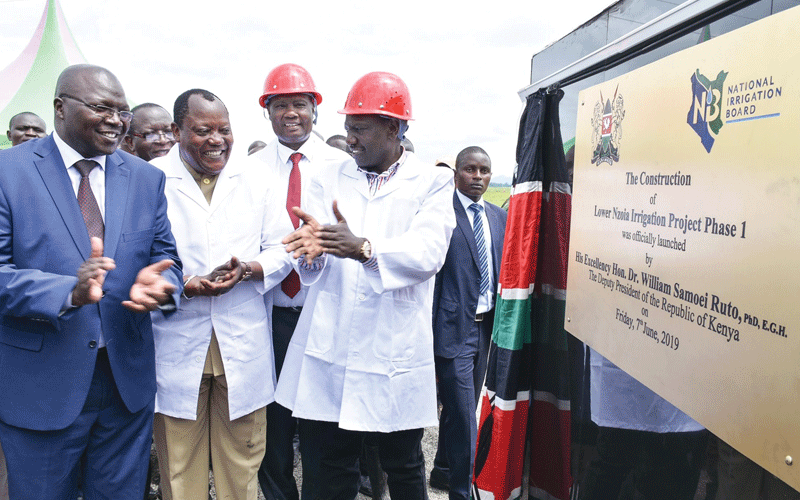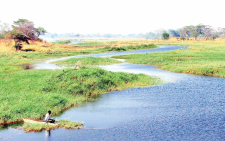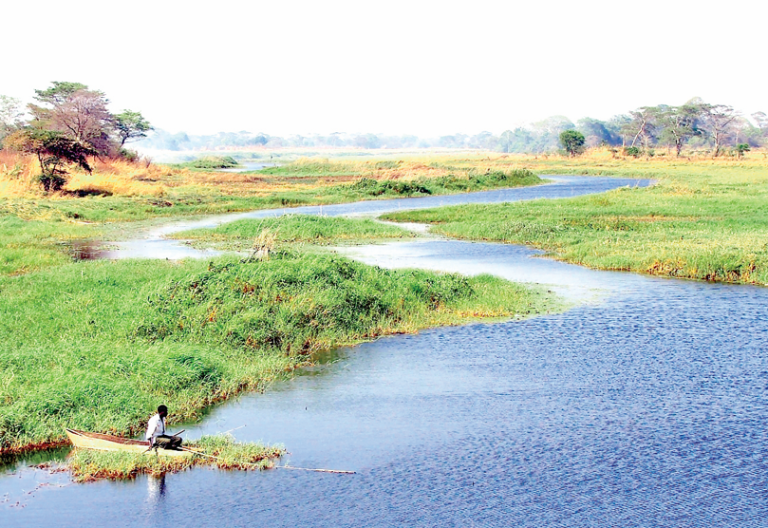Weiwei food basket under threat as rains wreak havoc
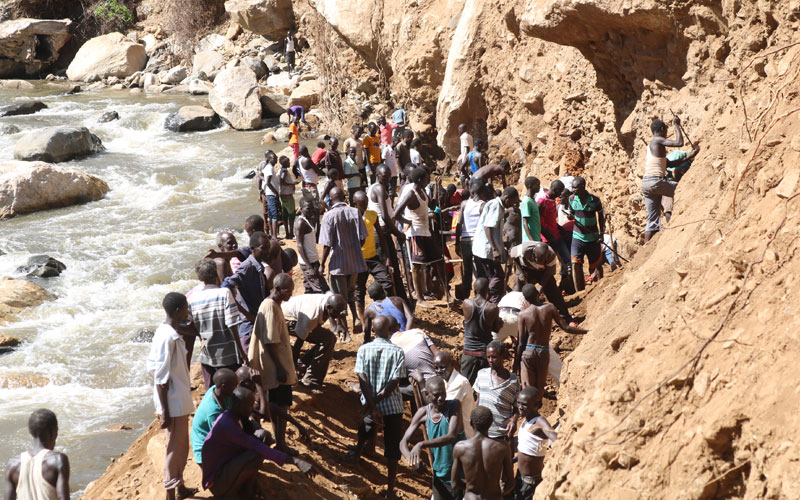
Manuel Ntoyai @manuel_ntoyai
When David Nang’oria started farming in Weiwei more than six years ago, little did he know he would one day be so confused on what to do.
Last year, heavy rains took a toll on farmers, destroying crops and pipes supplying water to the farms.
Hundreds of others have now decided to save the source of their livelihoods.
“When it started raining in October, most of us thought it would be the usual short rains that we are used to.
However, the situation got worse in November when the rain momentum increased and this led to rivers overflowing and destroying the water intakes,” says David.
Over several weeks in November and December, the farmers waited for the floods to subside, hoping for the government’s intervention.
When no help came their way, they decided to take matters into their own hands
Return to normalcy
In the last few weeks, the farmers have been digging trenches, furrows and rebuilding the water intakes.
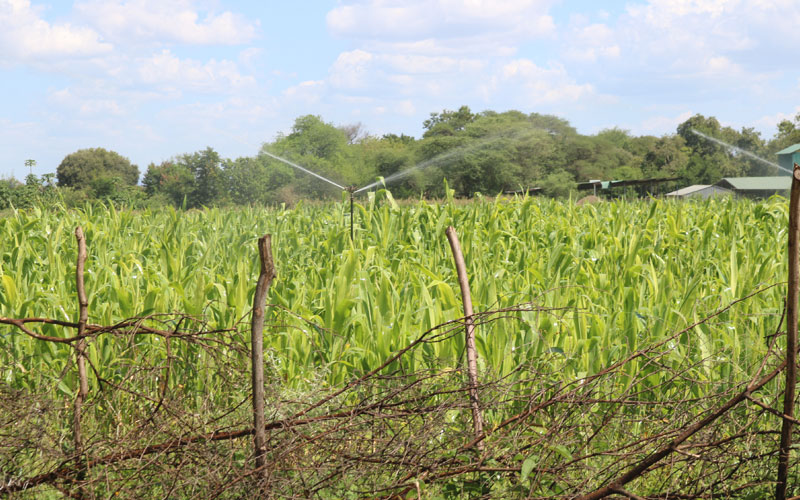
“We had to mobilise our members to help rebuild the same because we are the ones suffering,” says Weiwei Irrigation Scheme Chairman Mark Meut.
Meut describes Weiwei as the food basket of the North Rift region. “The whole of Pokot, Turkana and other counties depend on the food grown here, especially fresh produce.
We have 300 farmers affected, but who are ready to work with all levels of government to ensure that life returns to normalcy,” he says.
Meut says the loss made by the farmers will affect crops for the 2020/2021 seasons as the intake at the river was destroyed.
“Weiwei is one of the biggest farming projects in the country and the government has invested heavily in it,” he says.
Kerio Valley Development Authority (KVDA) Acting Managing Director Sammy Naporos told farmers the government had keen interest in the project because it covered the Big Four agenda.
“From our initial assessment, we need Sh300million to rehabilitate the water canals and the supply chain,” said Devolution PS Micah Powon.
Speaking during a fact-finding tour of the project led by Sigor MP Peter Lochakapong, the PS said the government was putting in place both long and short terms plans to ensure such disasters will be handled better in future.
“Farmers have lost more than Sh100 million worth of food in either their farms or in loss of water pipes.
We shall be sending more officers on the ground to determine the full cost of the damage and also work with the farmers to ensure they are back to producing and contributing to the economic growth of our nation,” he added.
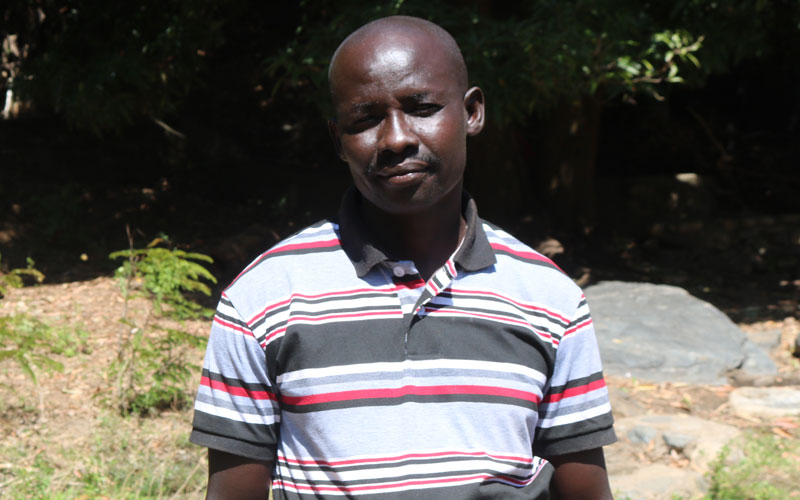
Last year, the national government spent Sh150 million building an intake to help increase water flow to the farms, some as far as 40km away. When the rains came, the intake was swept away.
Weiwei is part of the three irrigation schemes affected by the heavy rains that also swept pipes that supply water to the farms. The others are Tukou Sangat and Marich Pass schemes, all in Pokot county.
In 2016, President Uhuru Kenyatta flagged off the third phase of the Weiwei Irrigation Scheme.
“Last year, our members earned more than Sh42 million from agriculture. Now we are asking the government to listen to our pleas,” says Meut.
When President Uhuru Kenyatta visited West Pokot in 2016 to launch phase three of the scheme, he said it would help with food security as part of his Big Four Agenda.
Started in the early 80s, the scheme was funded through a bilateral agreement with the Italian government. Last year, the scheme got a Sh1 billion loan for expansion of the irrigation scheme by more than 300 hectares.
The farmers, who are allocated five acres each, plant mangoes, pawpaws, beans, maize and other crops, but are now staring at losses.
“Our crops are drying up. If this water doesn’t reach them as soon as possible then we are likely to face difficulties paying school fees for our children, feeding our families as well as paying for other utilities,” says David.
Inaccessible roads
Some access roads were also destroyed and the farmers are unable to take ready produce to trading centres.
For traders, while the county government has fast-tracked the grading of access roads, there are still worries that road works are too slow.
“We normally sell a crate of mangoes at Sh500 and a net at Sh300, but now the prices are rising.
There are farmers who are getting Sh600 for a crate and they will soon be demanding more because they are worried about their farms,” says Peter Komen, a trader in Sigor town.
